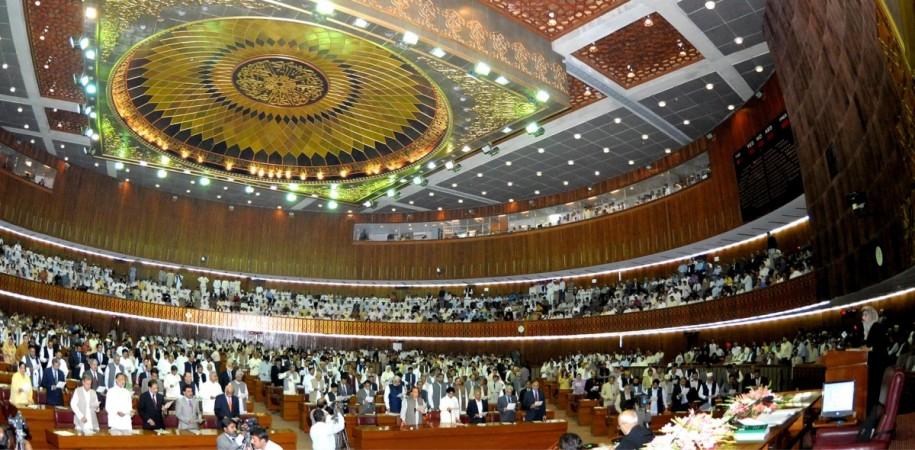
The Pakistani parliament on Thursday passed unanimous resolutions strongly condemning recent provocative statements made by Indian leaders, including the threat of attacks against Pakistani territory.
A resolution in the senate, the upper house of parliament, moved by the leader of the house, Raja Zafarul Haq, said Pakistan rejected India's hegemonic mindset, Radio Pakistan reported.
The resolution said that the house emphasised that Pakistan would never allow its territory to be violated by India under any pretext and that Pakistan's armed forces were capable of issuing a befitting response to any such incursion.
The resolution stated that India's statements confirmed the Pakistani government's apprehensions about Indian intentions to destabilise the country and that the people of Pakistan stand shoulder-to-shoulder with their armed forces.
The upper house urged the international community to take notice of India's provocative statements, which did not bode well for regional peace and affected prospects of sovereignty and stability.
The resolution stated the Indian provocations which undermined Pakistan's anti-terror campaign were also aiding and abetting terrorists fighting in Pakistan.
Upon conclusion of the discussion, Raja Zafarul Haq said Indian Prime Minister Narendra Modi's statements were in conflict with the UN Charter.
He said India was on the one hand needlessly exerting itself to become a permanent member of the UN Security Council (UNSC), while it continued thwarting the UN Charter by carrying out human rights violations in Kashmir.
Meanwhile, the national assembly or the lower house also passed a resolution moved by Finance Minister Ishaq Dar condemning "irresponsible and hostile statements" against Islamabad made by New Delhi's ruling leadership.
The resolution said that Pakistan would never allow any country to violate its territory under any pretext, and that the people of Pakistan and the armed forces were capable of protecting sovereignty and territorial integrity, and would give a befitting response to any threat from India.
The national assembly, through the resolution, urged the international community -- specifically the UN -- to take notice of the Indian leadership's "provocative statements", which were a threat to regional peace and stability.
The resolution said that these statements called into question India's professed desire to establish neighbourly relations with Pakistan.
The lower house took exception to Modi's statements during his visit to Bangladesh where he acknowledged the Indian government's involvement in East Pakistan in 1971 and the resolution noted that such statements confirmed Pakistan's belief of past and present Indian involvement in the destabilisation of Pakistan.
It also expressed regret over Modi's attempts at stoking hatred against Pakistan in Bangladesh and said that attempts to "sow seeds of discord" between Pakistan and Bangladesh would not succeed.
Both resolutions were passed a day after top Pakistani government officials, including Interior Minister Chaudhry Nisar Ali, spoke out against the recent Indian statements.
Nisar on Wednesday said Pakistan should not be mistaken for Myanmar, adding "our armed forces are fully capable of responding to any foreign aggression and Indian leaders should stop daydreaming".
Following a rare cross-border attack conducted by the Indian Army in Myanmar on Tuesday, Indian Minister of State for Information and Broadcasting Rajyavardhan Singh Rathore said on Wednesday that, based on intelligence, "we will carry out surgical strikes at the place and time of our own choosing".
"Western disturbances will also be equally dealt with," Rathore said when asked if attacks could be carried out on the western (Pakistan) border.
Narendra Modi in a June 7 address at Dhaka University blamed Pakistan for spreading terrorism and fear in India, saying "Every now and then Pakistan keeps disturbing India, creates nuisance, promotes terrorism and such incidents keep recurring".











